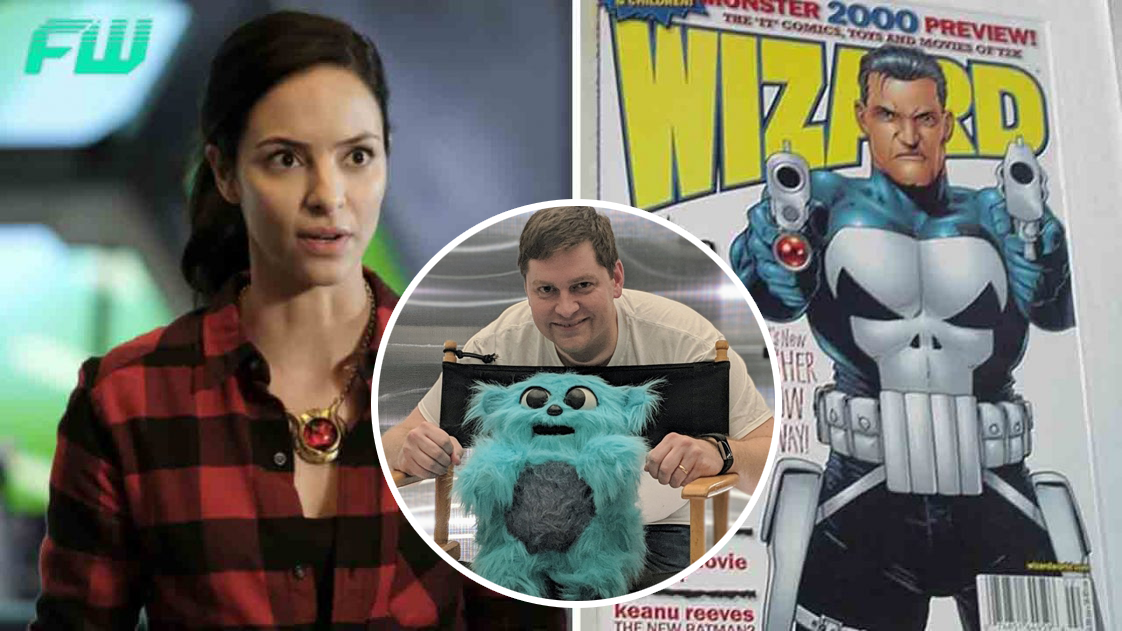Many have read the work of Russ Burlingame over the 2 decades of his career as a comic newswriter (for Wizard, Newsarama, and most recently, ComicBook.com). He has written extensively about the Arrowverse throughout his career, as well as having done a multitude of interviews. Recently, he agreed to a set of questions he answered over email to coincide with the release of his new book Best Movie Ever: An Oral History of Kaplan and Elfont’s “Josie and the Pussycats”.
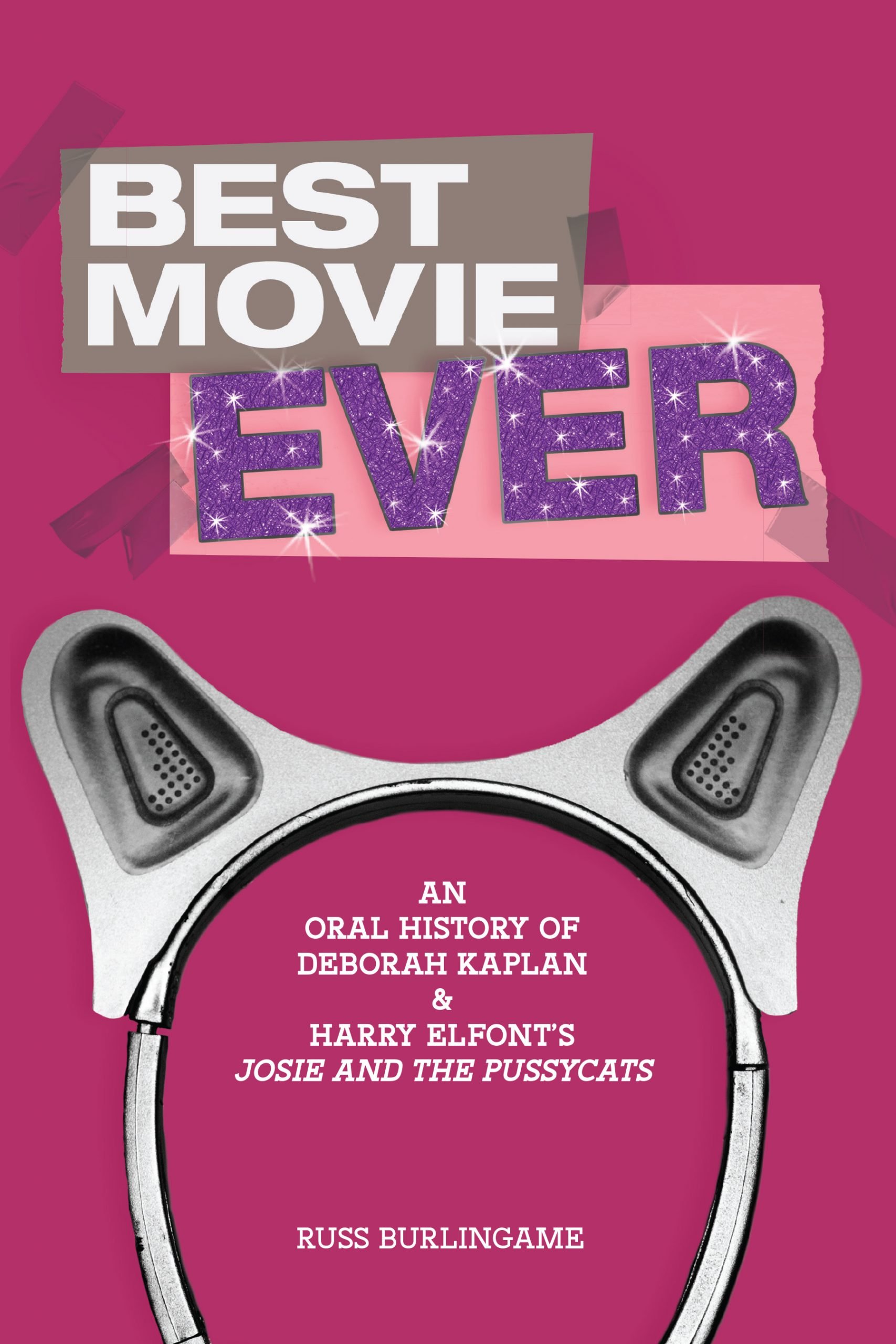
1. Many know you from doing interviews with actors on The CW superhero shows. How’s it
feel to be on the other side of the mic, so to speak?
I think the world of podcasting has changed how you think about that stuff. I’ve been
both a host and a guest more times than I can remember at this point, and so while I
might have been really put off by the experience in the past, these days It feels less
like a shock to the system.
2. What kind of created and cemented your love of comics?
I can’t say what created it, other than maybe my father always bringing them home.
He used to run an independent grocery store, and I just kind of always remember
comics being around. It’s very possible that my childhood love for He-Man and the
Masters of the Universe, and the series’ end when I was still engaged, resulted in my
parents grabbing superhero comics for me, but that’s just a guess.
What cemented my love for comics was 1992’s The Death of Superman storyline. I
picked it up out of idle curiosity because I had seen on the local news that they were
going to kill Superman. I wasn’t even a Superman fan at that point, it just seemed like
an interesting story, so I asked my dad to keep an eye out at the store for copies of
the story.
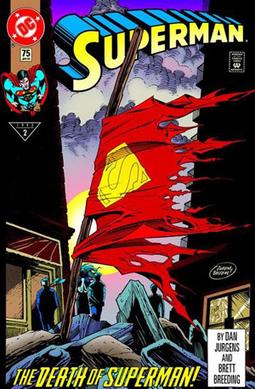
At the time, there were four monthly Superman comics, and only three of them came
to the old Jamesville Supermarket. The fourth, Superman, was written and drawn by
Dan Jurgens, who was also writing and drawing Justice League America at the time.
To get those issues, including the issue where Superman actually died, I had to go to
Uncanny Comix, the comic shop that used to be in Great Northern Mall, about 10
minutes from my house.
“The Death of Superman” got me to sign up for a subscription box for the first time,
and the quality of the “Funeral For a Friend” and “Reign of the Supermen” stories
that followed was so high that I kept coming back over and over. I read Superman for
almost a decade after that, and picked up on a number of other titles along the way.
3. So you wrote for the magazine Wizard for many years- how did you end up getting the
job?
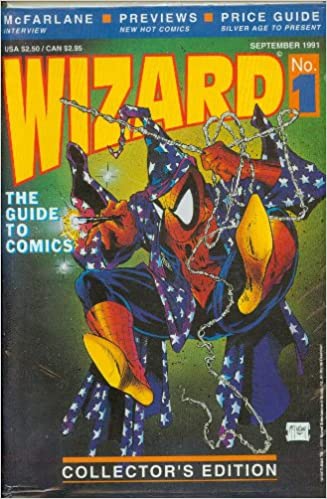
That’s a bit of a misconception, although it’s an easy one to make. I did my internship
at Wizard, and then freelanced occasionally for a while – maybe a year? – after that.
I got it in a kind of funny way. I went to a high school here in Syracuse that had
“SUPA” classes – Syracuse University Project Advance. It’s a program that lets you
get college credits from SU for taking high-level elective classes in high school. I
took a couple of years’ worth of journalism classes, and started at Oswego State
University with a 300-level journalism class as a freshman.
One of the assignments that semester – because it was mostly juniors, after all – was
to put together clips, and a cover letter, and to apply for an internship. I applied at Wizard, my clips bolstered by an interview with comic book writer Elliot S. Maggin
that I would later find out had won a statewide high school journalism award. I got
the job, and when I told my professor, I was informed that freshmen were ineligible to
get credits from internships. I said, “Well, this is my dream job, so I’m doing it
anyway.”
4. What types of things did you do at Wizard? What was it like to work at a comics
magazine in the late 90s/early 2000s?
Well, as an intern, my role was fairly limited. I got a few stories a month (usually two
short stories credited, and then participated in a few larger stories that would be
credited to the Wizard staff). Those, I would blow through pretty fast, since Wizard
was a monthly magazine and I was used to working at a weekly college paper.
After that, I would usually help with some copyediting or research – things that
everyone needs to do but which aren’t especially sexy. I also helped organize the
Wizard library for a while, which was just a long, narrow storage room stacked with
like 200 long boxes full of comics.
I was in the office at a very weird time – during my time, publisher Gareb Shamus
announced that he was starting his own comic book company, making all the people
we were reporting on effectively our competition. Many did not respond well to this. I
remember having fun, though, meeting with Jimmy Palmiotti and Joe Quesada, who
had come to visit the office around the time they were running the Marvel Knights
imprint.
I also remember doing a lot of projects that were either busywork or that BECAME
busywork when it turned out they were way more complex than expected. I was once
asked to read every appearance of The Punisher we had in the library and list every
crime he committed, for a “wanted” poster that was tipped into Wizard #101. It took
weeks, but ultimately only about 25% of my work was incorporated into the back of
the poster.
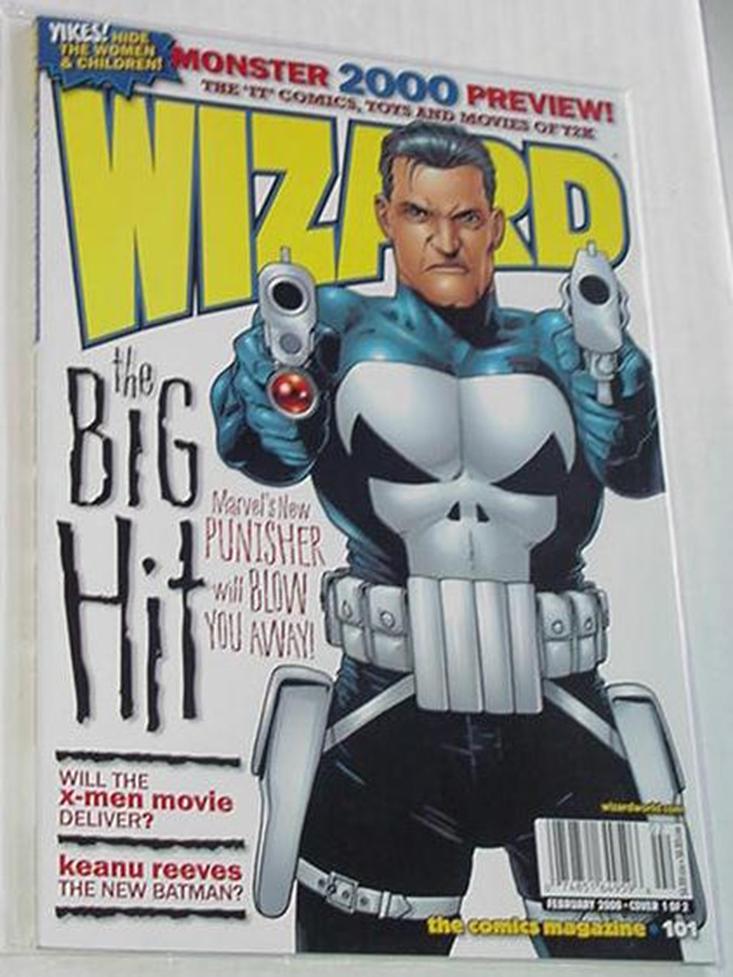
Of course, I got a little loopy with it. I “charged” him for things like jaywalking…and
unlicensed flying, for a single-panel cameo he had in a Fantastic Four issue where he
was flying past.
5. So you started writing for comicbook.com in 2011 (as many of our readers know). What
drew you to them?
They wanted me. The two guys who were running the site at that point reached out to
me when I was working for the Blog@Newsarama. The site was very small, then, and
was mostly a clearinghouse for press releases, and links to other people’s news.
At first, I declined – but after a conflict with my editor at Newsarama, I left. I was
considering getting out of the press altogether, and going back to managing video stores, but I had a number of stories that I had agreed to get “placed” for comic book
creators, so I went to CB with an eye toward unloading some content and leaving.
Instead, they were very welcoming and extremely receptive to my copious amounts
of arrogant feedback on the site. Shortly, I was helping them try to build it up.
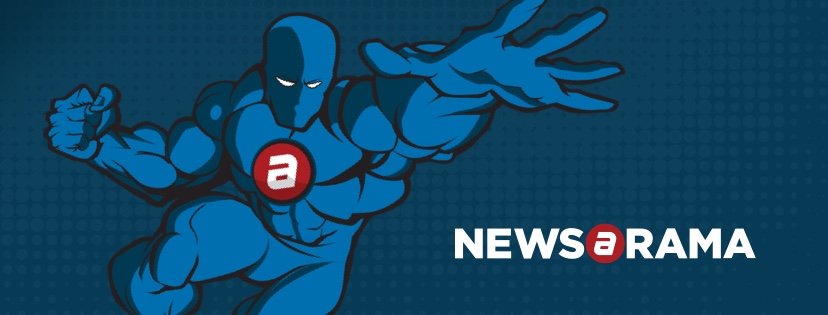
6. How did you kind of become the de-facto news writer for all things Arrowverse?
I haven’t been for a while – there are two other people who cover the Arrowverse, and
we all share shows. I was definitely the point person for the Arrowverse for a few
years, though – and then was “in charge” of our little 3-person team for a while, until
I left for New York Comic Con one year and they got along just fine without me.
It came together, because in the early days at CB, there were very few of us, and we
basically chose what we were going to cover. I covered the early seasons of The
Walking Dead until Brandon Davis, a superfan of the show, came along just as I was
starting to get burned out on it. And I picked up the Arrowverse about halfway
through Arrow’s first season.
7. Out of all the shows in the Arrowverse (only counting those that have aired on the CW,
not ones added retroactively like Constantine or John Wesley Shipp’s The Flash), which
one is your favorite and why?
Probably DC’s Legends of Tomorrow. It’s got a top-notch cast, and it’s incredibly
smart, funny, and you never know what’s up around the next corner. I love
entertainment that doesn’t take itself too seriously, and that is willing to get a little
“meta” from time to time, and Legends certainly offers all of that.
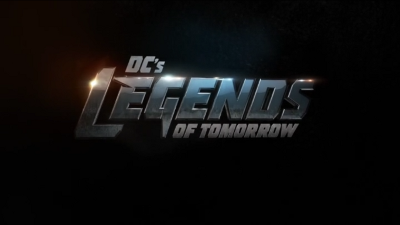
Plus: the cast and crew have always been lovely. When we did set visits (back when
that was a thing people did), a lot of productions were very bad at hiding how
inconvenienced they were to suddenly lose a day to 15 reporters swarming the set
demanding attention. Legends, on the other hand, always seemed genuinely thankful
for the support of our outlets and the fans.
8. You’ve interviewed a multitude of Arrowverse actors. Who was your favorite to talk to?
I don’t really like to say who’s my favorite/least favorite. There are a lot of people I’m
friendly with, and I don’t want anybody to feel left out.
What I can say, though, is that I genuinely believe Tala Ashe is one of the best actors
working on any screen, big or small, right now. She is also a very patient and
responsive person, who has dropped everything to chat with me more than almost
anybody.
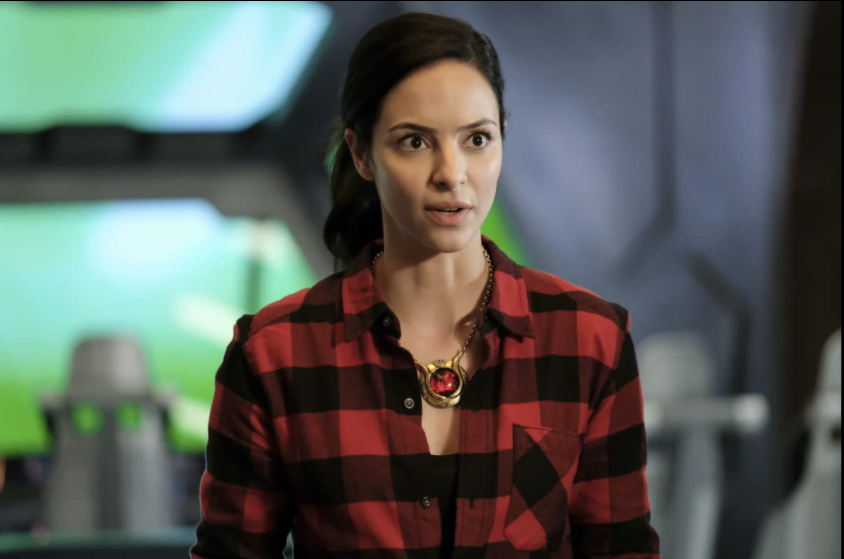
9. Again, out of all of the interviews you have done with actors from the Arrowverse, what
moment from any of them has stuck out the most to you, and which is your favorite?
There have been a bunch! When Mehcad Brooks was first cast as James Olsen on
Supergirl, there was a LOT of talk and controversy about the long-running Superman
character being recast as Black. I asked him whether he was looking forward to
moving past constantly answering “why does he need to be Black?”
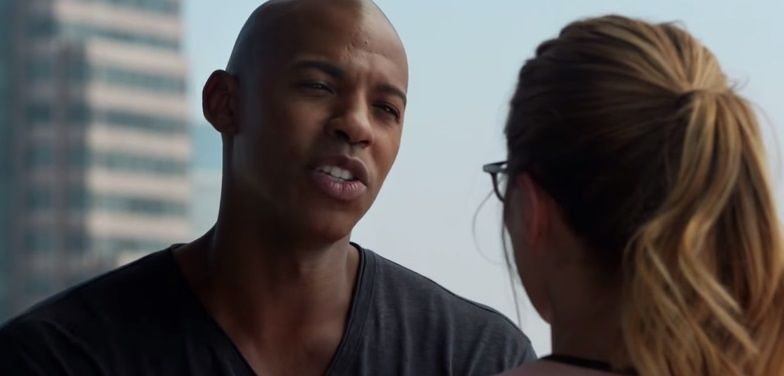
Mehcad told me, in part, “Growing up as a kid, I didn’t have anybody to look to. One
time I dressed up as Superman, and one of my friends’ parents told me, ‘You can’t be
Superman; you’re black.’ Ten years old, nine years old, and I’m like, ‘Well, he’s from
Krypton, so he’s probably not white either, right? He’s an alien.’ That was my thought
process: he’s not from Earth, and so it just goes to show, that mentality I think is
leaving us and I’m really happy to be part of the fact that there’s going to be little kids
that look like me, who can now look at somebody and be like, ‘I can be like that.’ So
I’m not sick of that question, actually. I’d like to answer it more”
Listening to him deliver that answer, I just immediately knew I was going to love his
thoughtful, passionate take on the character.
There was, all the way on the other side of the spectrum, an interview during a set
visit, where an actor I’ll let remain nameless gave us about 15 minutes of time, only 2-
3 minutes of which was usable. It was HILARIOUS, and those of us who did the visit
have been sharing around a private YouTube link featuring the video ever since.
10. Now expanding that to all interviews in general, which would you say is your favorite
you’ve ever done?
That one’s basically impossible to give one, concise answer to.
In high school, I interviewed Rubin “Hurricane” Carter, the former boxer who was
wrongly convicted of murder and served decades in jail for it. It was a formative
experience, talking to someone that different from me at such a young age, and I
would periodically call him after that, until they made a movie about his life and he
changed his number.
My first day at Wizard, I interviewed Dan Jurgens, who had been my hero as a
teenager. We got along incredibly well, and have been friends ever since. The
interview itself was fairly forgettable, and about a story that I don’t think is even
available in reprints now, but meeting your heroes and having them turn out NOT to
suck is always a thrill.
I’ve had long, friendly, sometimes mostly- or completely off-the-record interviews
with people like Kevin Smith and Back to the Future writer Bob Gale. Those are
incredible experiences.
And of course, recently, I spoke with Josie and the Pussycats directors Harry Elfont
and Deborah Kaplan numerous times for my book. By the end, we had a rapport, and
there was something really satisfying about our final interview, where it was half getting the final quotes to complete the book and half-joking around and sharing
stories. I’m not positive they were as excited to have me eat that much of their time,
but for me it was fun.
Follow us for more entertainment coverage on Facebook, Twitter, Instagram, and Letterboxd.

